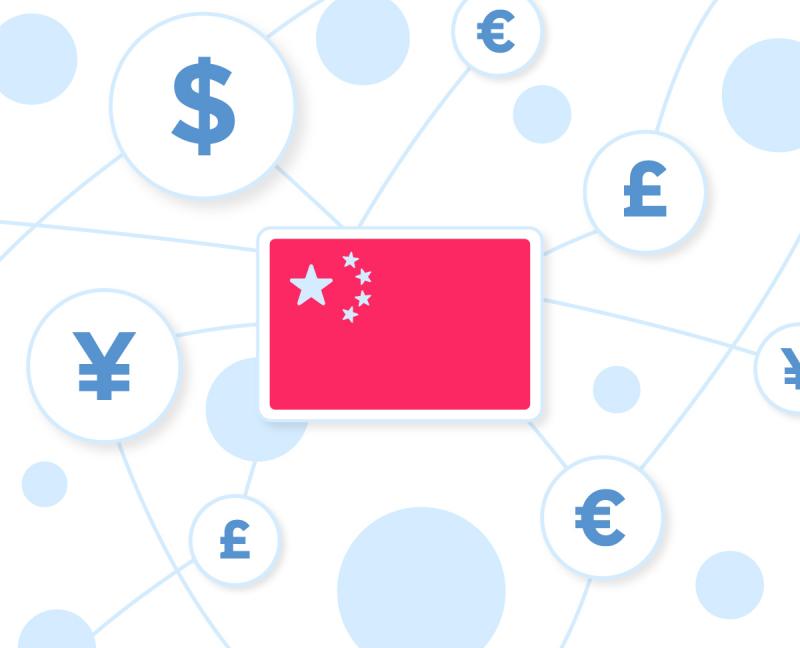
Remittances – the term for money transferred by foreign workers to their home countries – have grown significantly in recent years as populations have become more mobile and people have sought opportunities overseas. According to World Bank data released in 2019, China received $67 billion out of total global remittances of $689 billion in 2018, making it the world’s second-largest remittance receiver after India.
In addition to remittances, there is substantial inward investment from businesses who buy supplies from Chinese vendors. So, if you want to send money to China to support your family or to pay a local supplier, what methods are available to you, and what are their relative advantages and disadvantages?
Let’s compare traditional payment methods with today’s new breed of international money transfer operators (MTOs) and online payment specialists, and consider your banking and payment options if you’re a business with a Chinese trading partner.
Thanks to the power of the internet and the growth of fintechs, there are now many non-banks who provide fast and convenient cross-border transfers. Digital technology, and increasingly mobile communication, enables online payments to nearly all regions of the world, bringing financial inclusion to people who may be outside the traditional banking network. And funds can be received in a variety of ways, such as to a bank account, to be picked up in cash, or delivered to a mobile wallet.
Moreover, these online money transfer services offer better exchange rates than banks and don’t have banks’ high transfer fees – often as much as £30 per transaction. The remittance industry has been transformed by cashless payments through cards and digital wallets, and today’s online specialists offer an automated and reliable alternative to high street banks and foreign exchange brokers.
When making international transfers with cards, beware of processing costs. For example, if you use a credit card, you must pay a commission of 1.5%-3%; however, debit card payments don’t usually incur additional fees.
Bank-to-bank transfers, otherwise known as wire transfers, have long been the default method for cross-border payments. Because they are the foundation of an established and dependable financial system, they provide a high level of security and trust. However, the downside is cost and speed. International payments usually go through SWIFT, which is a secure messaging system for financial transactions. If you’re a business whose bank doesn’t have a local branch in China or a direct relationship with a Chinese bank, transfers must go thorough SWIFT’s network of correspondent banks – a convoluted process that can be slow and expensive.
If you’re making person-to-person payments, the remittance solutions offered by money transfer operators and banks maybe be sufficient for you needs, but you should always look closely at all the charges to get the best rates. If you’re a business that deals with Chinese vendors, you should consider your wider financial needs. That means finding a payment partner that can handle your banking requirements as well as facilitate international payments, providing you with a comprehensive cross-border service to support your business when making and accepting payments.
A first step is to open a business account. For example, with Safenetpay it’s easy to set up a UK account number, sort code, and IBAN in your own name and make payments worldwide. You can also make payments in multiple currencies, meaning your payments stay local and you can better manage foreign exchange rates. Safenetpay also has the advantage of being an authorised electronic money institution and can issue digital money to store on electronic devices.
China is a highly regulated nation with strict controls on the flow of money in and out of the country. The Chinese government manages how much the official Chinese currency (the yuan or remnimbi) is worth, setting a daily benchmark for its value against other currencies. Therefore, unlike currencies such as the US dollar and the British pound, the yuan doesn’t have a free-floating exchange rate.
This has a significant impact on trading relationships, particularly when the Chinese government devalues its currency. Lowering the value of the yuan helps Chinese exports because it attracts business from foreign companies who can buy products more cheaply, and it helps people remitting money to China, but at the same time, it undercuts and damages the export side of foreign businesses.
Due to the US-China trade war, currency movements have been especially volatile in recent times. Bear this in mind when sending money to China and stay informed on currency developments and exchange rates.
Whether you’re sending money to China or accepting payment from a Chinese trading partner, choosing the right payment provider can make all the difference. Consider your needs carefully and remember the benefits of opening a business account with a provider who understands international payments. Not least, with online payments increasing every day – and China’s preference for digital and mobile money – find out how today’s online payment systems can help your business.